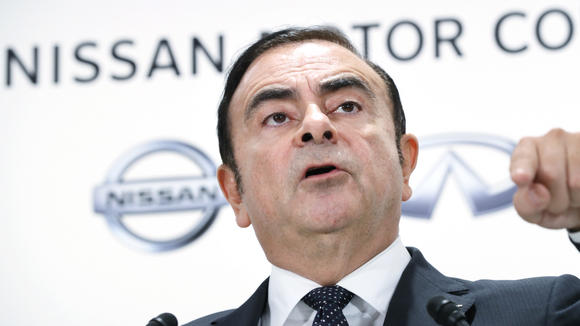
A Japanese court granted bail to ousted Nissan Motor Co Ltd chairman Carlos Ghosn on Tuesday more than three months after his arrest for alleged financial crimes, on condition he submit to video monitoring and stay in Japan.
Judges at the Tokyo District Court earlier accepted defence lawyers’ assurances that Ghosn would submit to extensive surveillance and set his bail at 1 billion yen ($8.9 million), a win for his new legal team on his third bail request.
Ghosn‘s release would allow him to meet more frequently with his lawyers and build his defence ahead of his trial in the coming months, on charges of aggravated breach of trust and under-reporting his compensation at Nissan for nearly a decade
to the tune of $82 million.
If convicted on all the charges he faces up to 10 years in jail. The ex-chairman of Nissan, Mitsubishi Motors Corp and France’s Renault SA has denied wrongdoing.
While Ghosn’s bail amount is among the highest on record in Japan, it is half the 2 billion yen paid in 2005 by Mitsuru Asada, a businessman who was later convicted of defrauding the government through a beef buy-back programme.
Ghosn, who turns 65 on Saturday, has spent more than 100 days in a 4.8 square meter (52 square foot), tatami mat-lined cell. In his only court appearance, he said in January he looked forward to his trial to “finally have the opportunity to defend
myself”.
In an interview later that month with Japan’s Nikkei newspaper, he said Nissan executives opposed to his plans for closer ties with partner Renault were behind the allegations against him.
Nissan declined to comment on Tuesday’s bail decision, which comes a day after the head of Ghosn’s new legal team said he was optimistic the executive would be released with a promise to submit to surveillance.
The appointment of lawyer Junichiro Hironaka, nicknamed “the Razor” for his combative style, to lead his defence is widely seen as a move to adopt a more aggressive legal strategy.
Hironaka has argued the allegations should have been resolved as an internal company matter, and blasted the judicial system for keeping his client in jail.
Ghosn’s France-based lawyers meanwhile revealed on Monday they had complained to the United Nations that his rights had been violated during detention in Japan.
The case has sparked criticism of Japan’s criminal justice system and some of its practices, including keeping suspects in detention for long periods and prohibiting defence lawyers from being present during interrogations, which can last eight hours a day.
Shin Ushijima, a former prosecutor and lawyer, said that public opinion likely played a role in the court’s decision to grant bail, along with assurances from his lawyers that he was “prepared to be under any restraint”.
“The court was partly influenced by the opinion of the entire world … people in general thought (the detention period) is too long. This will change Japan’s criminal
procedures,” he said.
Having secured his freedom, Ghosn now faces a criminal justice system where only three of every 100 defendants pleading not guilty are acquitted.
There is also no plea deal mechanism that would allow Ghosn to agree to lesser charges for a lighter sentence.
(REUTERS)/FRANCE24

Leave a Reply
You must be logged in to post a comment.